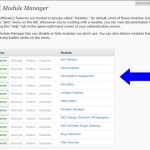For those unfamiliar with SEO, the title tag is a primary method to communicate and convey the subject and topic of your page. In addition to the title appearing in the SERPs (search engine result pages) as the call to action, it also serves as the title for the snippet (which is typically 255 characters extracted from the page). On a scale of 1-10, it is a 9 and is the first thing visitors and search engines see, but what other significance does the title have for SEO?
As alluded to above, beyond the original significance of just letting us know what to expect from a page, titles act as a sorting mechanism. Titles have the capacity to make particular keywords prominent if there are other favorable signals (for those keywords) on that page. On a side note, you can find a detailed post on naming conventions here, however, back to the subject matter.
What else are titles good for?
Based on trial, error and refinement, we know that search engines prefer a page that has a consistent title and h1 tag (header tag with the main keyword) and that it helps to have the main keyword used in context throughout the web page (within the first 25 words, the middle and end of the page) to set the tone.
In addition to those on page considerations which translate into topical relevance using term frequency a predominant ranking metric, by combining titles and links with continuity you can enhance the amount of link flow transferred to a page.
Did you know that a link from a page where the title and anchor text/link text are either exact match or synonymous increases relevancy for the target page? This is based on the premise of the link graph, which in addition to looking at the keywords, theme density of the site and site architecture, the total number of links to reference internal pages in addition to backlinks (links from other websites) anchor text (the text comprising the link) is used to create a summary of that pages relevance and authority, like a cross pollination of two distinct metrics.
Keep in mind that 50% of the ranking factor for any page is within your grasp, you can control the anchor text from your own content and you can control the titles and naming conventions of your own pages.
So, if you are looking for ways to increase topical continuity, start at home with your own pages and look for ways to either (a) clean up sloppy tags, titles and links or (b) start fresh by migrating your old content into a new content management system where you can synchronize and control multiple ranking factors simultaneously site wide with less effort.
The simple Google search operator that allows you to find, define and search for linking opportunities within your own website using a Google search bar is….
*Just replace website.com and the keyword with your domain name and relevant target keyword you are researching. In addition to seeing how many pages contain that term/keyword from the total number of pages within your website, this is Google showing you which pages have the highest relevance for the term.
From there, if you see 10 results, then that means you have 9 opportunities to build relevant links (ideally with that keyword) to a preferred landing page (the first page has the highest relevance).
If the third page down is better suited, then concentrate all 9 pages to the third page on the list from the 10 results produced. The idea here is, these pages already have a dominant percentage for the keyword in question; hence they pass a great deal of link flow particularly when you use the same anchor text as the keyword.
To create an even stronger page, once you have mapped out 10-20 pages to get links from internally within your website, if your external links are coming from web pages that have the main keyword in their title tag, Google will really reward that link a relevant backlink.
So a page with 100 internal links with the preferred keyword as the anchor text and 50 inbound links from other websites (who also use that preferred keyword as an anchor) completes the circle of the on page and off page factors for creating a top ranking position.
For example, your page is about transmissions, you have linked from every relevant page within your website using the keyword transmissions, and now you get inbound links from another website that is about automobiles, car parts or transmissions; then that link scores higher in relevance for your pages blueprint / link graph.
Wikipedia is the master of SEO friendly titles and you can see how effective this is by allowing them to reinforce topical continuity of multiple themes at every opportunity. Since the information is so structured ans user generated, people naturally link to it as a resource for citation (which once again completes the cycle).
The synergy between their own internal linking and the external links you receive from topical / themed pages allows each page in their site to achieve a high concentration of ranking factors which become quite obvious anytime someone conducts a query and sees a double listing for Wikipedia at the helm of the search.
By applying the logic of linking from pages with relevant titles, topics or sub folders, you can increase the websites on page ranking factor tremendously and essentially negate the dependency on off page ranking factors alone to propel your pages up the search results. Remember, there is a synergy between titles, tags and links and once mastered your website can reach higher heights that just relying on any one of those ranking factors independently.












Good, thanks for the information.
A careful research of the title and keywords should be made because the robot programs are very powerful to catch the associativity of the query typed in by the users and the keywords. so any irrelavancy will led our website to fall in its page ranking.
Regards,
Ronak Jain
Good post, thanks for the info.
Nice post and informational Article.
Great Post……Thank You